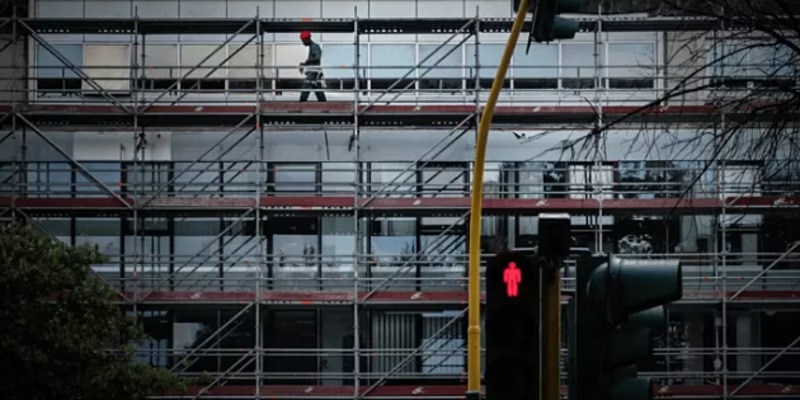
After state retreat and financialization, in the middle of nature and climate emergency, the foundational agenda is about renewal of the reliance systems which deliver the goods and services that keep us safe and civilised. Under rubrics, like radical social innovation and democratic experimentalism, other researchers and practitioners are pursuing similar ends and means. Hence the conference questions: what is distinctive about the foundational approach to innovation and experiment; and what can we and others learn from considering and comparing different approaches?
If we are to develop shared answers to these questions, we must focus on actors, organizations and territories. How can actors drive change when social democracy is exhausted, technocracy is discredited, and political agency is splintered? What organizations, business models and forms of representation are appropriate when corporate business is extractive, and the state lacks resources and expertise? Where are the places and territories where alternatives can be focused, and momentum can be generated as bottom-up initiative meets top-down reform in multi-level systems?
Our aim is to learn to act at scale with social sensitivity and environmental responsibility in renewing high carbon footprint systems like food, transport and housing. Our hope is to help build new systems like wood economy connecting sequestrating forest to timber frame construction, while tilting the composition of consumption towards responsibility by adequately funding social infrastructure and service systems like health and care. We need debate and discussion because nobody knows how to do all this and, in line with previous conference practice, we will mix researchers and practitioners in most sessions. The conference will make use of simultaneous translation (Italian-English and English-Italian).
Keynotes: Charles Sabel and Fabrizio Barca
Sessions:
1) Organizing the Foundational Economy
2) Localities, Boundaries and Social Innovation
3) The Collective Voice of Foundational Economy
4) Hybrid Knowledge in Action: Making Sense of Foundational Economy in National Settings
5) Roundtable: from Experiments to Public Action
The conference will make use of simultaneous translation (Italian-English and English-Italian)
There will be an option to join the conference online.
Eventbrite registration is mandatory both for in presence and online participants, see bottom of page
Programme
Tuesday 13 September, 2pm – 6pm
Welcome and introduction
Opening speaker, Charles Sabel (Columbia Law School): Democratic experimentalism and wicked problems
First session: Organization and organizing
Panel 1
- Organizing the foundational economy. Serena Sorrentino CGIL, Public Function
- If we are the most beautiful country in the world, why don’t they pay us? Rosanna Carrieri, Association “Mi riconosci”
- Organizational hybrids: the B Corps and the Case of Sales Spa. Domenico Tessera Chiesa, Owner and Managing Director of Sales Spa, BCorp and Società benefit
Discussants: Joselle Dagnes and Kevin Morgan
Panel 2
- Food and public action: the mensa of Melpignano, Valentina Avantaggiato, Mayor of Melpignano
- Social delivery: cases and experiences from Italy, Filippo Poltronieri, Journalist
- Organising alternative food distribution: the Cresco case, Pietro Cigna e Lorenzo Barra
Discussants: Bernd Bonfert and Lia Tirabeni
Wednesday 14 September, 9am – 1pm
Opening speaker, Andreas Novy (University of Vienna): Transformative innovation,
Second session: Territories, borders, social innovation
Panel 3
- Innovating in marginalized areas: the NEO project by Gagliano Aterno, Raffaele Spadano, Research Group “Montagne in movimento”, University of Valle D’Aosta
- Housing and sustainable construction, Sara Faraci e Davide Trapani, Edileco Valle D’Aosta
- The reception of migrants in inland and mountain areas, Andrea Membretti, Matilde Project
Discussants: Vittorio Martone and Daniela Storti
Panel 4
- New cultural centers in the Alps: the village of Paraloup, Beatrice Verri, Director of the “Nuto Revelli” Foundation
- Social innovation in marginalized areas, Cooperativa Cramars, Vanni Treu, President coop. Cramars
- Cooperating in adverse conditions: the Fondazione Comunità di Messina, Gaetano Giunta, Secretary General fondazione Comunità di Messina
Discussants: Emanuele Polizzi and Valentina Moiso
Wednesday 14 September, 2pm – 6pm
Opening speaker: Fabrizio Barca (Forum Inequality and Diversity): A new method for the development of places: borders, powers and resistance
Third session: Self-organization and collective voice
Panel 5
- The recovered companies, Sara Di Gregorio (SO.C.A.M. Soc.Coop) and Leonard Mazzone, Rete italiana imprese recuperate
- L’auto-organizzazione dei rider, Riccardo Mancuso, FILT- JustEat
- Industrial and environmental innovation: the GKN case – Francesca Gabbriellini (Università di Bologna)
Discussants: Alessandra Quarta and Ian Rees Jones
Panel 6
- The right to housing, Margherita Grazioli, Movimento per il diritto all’abitare – Roma
- movements for housing
- Self-organized clinics and health, Sara Vallerani and Giuseppe Bartolomei, Microclinica Fatih
- Commons in urban contexts, Gregorio Turolla, L’Asilo (ex Asilo Filangieri – Naples)
Discussants: Sandro Busso and Davide Caselli
Thursday 15 September, 9am – 1pm
Opening speaker: Karel Williams (Foundational Economy Collective): Liveability and the cost of living crisis
Hybrid knowledge and national cases: the foundational economy in action
David Bassens and Sarah De Boeck (Belgium)
Leonhard Plank (Austria) (online)
Angelo Salento (Italy)
Karel Williams (Wales)
Chair: Joselle Dagnes
From experiments to public policies: scalability and generalizability
Fabrizio Barca
Richard Bärnthaler
Lavinia Bifulco
Julie Froud
Charles Sabel
John Tomaney (online)
Chair: Filippo Barbera


